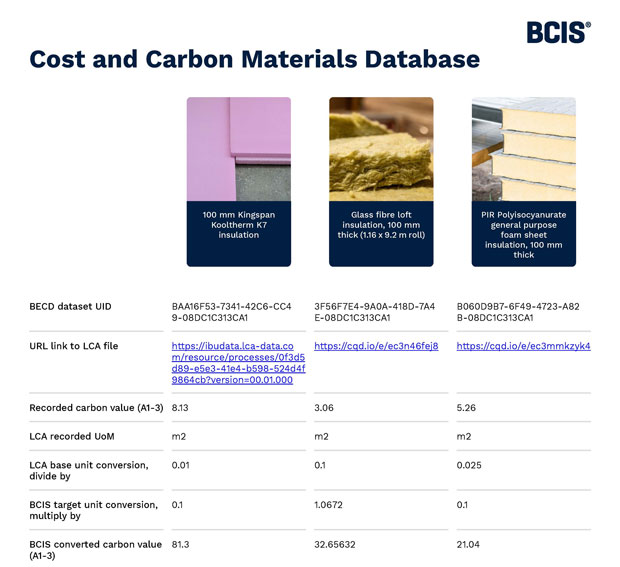The Building Cost Information Service (BCIS) has launched a Cost and Carbon Materials Database to help the built environment sector make better informed decisions for their budgets and the environment.
Said to be the “first-of-its-kind”, the new database is fully compliant with the RICS whole life carbon assessment standard, which is set to become the world-leading standard for consistent and accurate carbon measurement in the built environment.
The database includes the costs of a growing list of more than 9,200 common building, civil engineering and specialist engineering material resources with UK average merchant prices. It also outlines the effects of inflation, past and forecast, on the cost of those materials and includes detailed carbon credentials for a representative material, where available.
For BCIS, the database is a natural progression of providing both cost and carbon data to the industry, to bring them together in a consistent, easy-to-understand and simple-to-use format, which empowers cost professionals to make more informed choices, whether they are at the estimating, procuring, benchmarking or auditing stage.
BCIS CEO James Fiske said: “I’m very proud that we can offer this new service to the industry. It’s the only database of its kind available and will be an essential tool in helping the built environment’s drive towards net zero.
“Having led on the development of the Built Environment Carbon Database (BECD), a free industry repository for the sharing of product and project carbon data, it really struck us how inconsistent the data can be.
“It’s all well and good saying that construction firms should be calculating and reporting on embodied carbon, because we know we have a mountain to climb in terms of reducing emissions from the built environment, but the practicalities of those calculations and trying to sift through the data to find what you need is far from straightforward.”
Fiske added: “When it comes to actually being able to make informed decisions, so you can properly assess the monetary and environmental costs of using one material or product over another, you can be tripped at the first hurdle because the units of measure for what you’re comparing aren’t even the same.
“The Cost and Carbon Materials Database is our first step to making those decisions much easier. As well as looking up current costs, which will be updated monthly, we also provide percentages for past inflation and a 12-month forecast, so you can see the bigger picture.”
At Facilities Management Journal, our commitment is to deliver content that meets the needs and interests of our readers. To ensure we continue to provide valuable insights and engaging articles, we invite you to participate in our Reader Survey.
Your opinion is invaluable in shaping the future direction of our magazine. By sharing your thoughts, preferences, and suggestions, you play a crucial role in enhancing the content and overall experience for our readership.
To access the survey, please click on the following link: https://www.surveymonkey.com/r/9XVVXYP.





